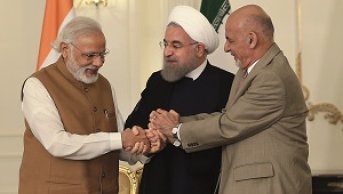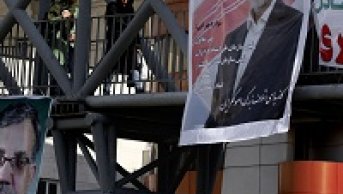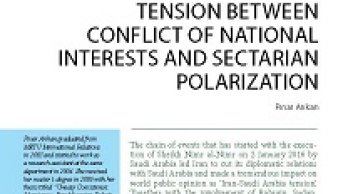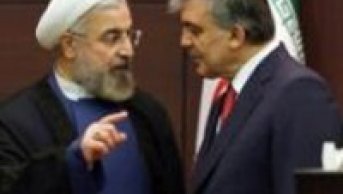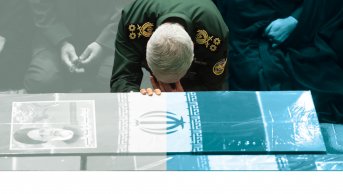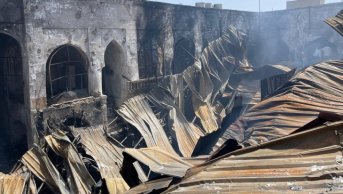Iran, Musaddeq and the Coup
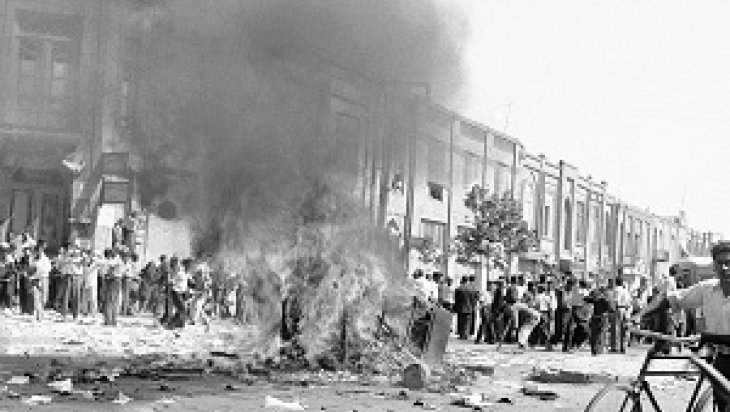
On 19 August, it has been 63 years since the coup against Musaddeq,which has remained as a deep scar for Iranian history and political psyche. Muhammad Musaddeq, who was elected to the parliament through popular vote in 1949 and appointed as Prime Minister by Shah Muhammad Reza Pahlavi in 1953, was dismissed from office by a coup that was orchestrated with the support of American and British secret services.The political movement Musaddeq was leading, the National Front, was subjected to severe political repression. Musaddeq’s name has been identical with nationalism and he has been regarded as Iran’s national leader even today with the values he represents such as ‘constitutionalism, popular sovereignty, anti-imperialism.’ In all the social opposition movements from 1979 Iranian Revolution to 2009 Green Movement and in all election processes in the country, those people and politicians who want to present their allegiance to these values carry posters of Musaddeq and print his portrait to election banners. Such that, referring to Musaddeq’s success in nationalizing the Iranian oil industry run by the British, the Joint Comprehensive Plan of Actions that was signed between Iran and Western states on 14 July 2015 made a tremendous impact as the second great victory of Iran against the West. The role of the US in the 19 August 1953 coup against Musaddeq, which inflicted a deep wound in Iranian-American relations, was openly accepted by the then-Secretary of State, Madeleine Albright in her speech on 17 March 2000. She said “In 1953, the United States played a significant role in orchestrating the overthrow of Iran's popular prime minister, Muhammad MusaddeqIn 1953, the United States played a significant role in orchestrating the overthrow of Iran's popular prime minister, Mohammed Mossadegh..”Therefore, the first time in history of the modern Middle East that can also be read as the history of coups, a foreign support has been admitted by its perpetrator.
Musaddeq and National Front Movement
Muhammad Musaddeq, who had a PhD in Law from Switzerland,became interested in politicsduring the Constitutional Revolution of 1905-1906. After he came back from Switzerland in 1913, he became a faculty member in Tehran University Political Science Faculty. He served as Finance Minister in the cabinet of Ahmad Qavam government in 1921, and as Foreign Minister in the cabinet of Moshir-ad-Dowleh government in 1923. As a legist who was dedicated to preservation of 1906 Constitution and execution of all its articles regarding popular sovereignty all through his political life, Musaddeq opposed to the parliamentary bill of Prime Minister Reza Khan that would terminate Qajar dynasty and establish Pahlavi Dynasty as well as declare himself as Shah in 1925.After the adoption of this bill by the Iranian parliament, Musaddeq quit the political scene until the occupation of Iran and dethronement of Reza Shah by Allied Forces, replacing thethrone with his son, Muhammad Reza Shah in 1941. In 1944, Musaddeq was elected as a member of parliament again.
National Front came together as a group of twenty politicians and intellectuals in a protest to convey their demands, which were‘free and fair elections, termination of martial law, freedom of press’ to the Shah in the Royal Garden in October 1949 during the Parliamentary elections that lasted for eight months.After the protest, this group opted for forming a loose coalition under the name of National Front rather than establishing a political party. National Front declared that it would be open to any political view, party, organization and union who support their demands. The programme of National Front included the aims“to providesocial justice, preservation of Constitutional laws, free elections and freedom to express political view, better economic conditions.”The Front declared ‘despotic state’ and ‘colonial domination’ as the two threats to Iran’s national interest and to the future of the country and nation.
According to the National Front, the despotic rule of the state could be ended by realization of popular sovereignty in the parliament and in politics through the proper implementation of the constitution. The colonial domination, however, could be ended by nationalization of the Iranian oil industry that was run by the British company and by acquiring the right to extract, exploit and export of its own natural resource. In 1950 elections eight members of the National Front were elected to the parliament and the social support they got made them an influential group despite their low number of seats in the parliament.Besides their attempts such as implementation of the constitutional principle of “the Shah must reign; not rule,” preventionof the Shah’s intervention to the parliament, and democratization of election law and press law through constitutional reform, they assumed active role in the Oil Commission of the parliament.The Oil Commission that worked under the chairmanship of Musaddeq was responsible from reviewing the 1933 Agreement with Britain and examining the Supplementary Agreement signed in July 1944 before submitting it to parliamentary approval.As a result of decisive efforts of Musaddeq and National Front, the Commission rejected the Supplementary Agreement in March 1951 and approved the resolution for nationalization of oil industry. The resolution became law with the unanimous vote of parliamentary members on 13 March 1951 and Iranian oil industry was nationalized.Joyfully celebrated by the Iranian people in the streets, this event went down in history of Iran as Iran’s victory against despotism and colonial domination. This success carried Musaddeq to the office of Premiership in April 1951.
Premier Musaddeq
When Musaddeq presented his cabinet to the parliamentary approval he announced a programme comprised of two articles: 1. Execution of the oil nationalization law in all over the country and appropriation of incomes for betterment of the country’s economy, prosperity and security; 2. Reform in parliamentary election law and the law of election of provincial councils.Immediately after assuming office Premier Musaddeq started negotiations with the British oil company, conducteddiplomacy and resorted to the US mediation. However, the negotiations came to a deadlock in October 1951 and the British employees of the company were evacuated. One year later the diplomatic relations with Britain were called off. On the other side, Iran had been subjected to an international oil embargo since September 1951 and Musaddeq government had become economically weak. In June 1953, the US President Eisenhower announced that he will stop aid to Iran unless the loss of the British company was compensated, but Musaddeq turned down the proposal.
Shah Muhammad Reza Pahlavi did not have any legitimate ground to intervene in the process of oil nationalization but he continued to intervene in Musaddeq’s exercise of Premiership powers and nomination of the ministers. These anti-constitutional interventions led Musaddeq to declare his resignation from office, which ignited bloody public protests in 21 June 1952. Public support resulted in the Shah’s retreat and he asked Musaddeq to continue his duty. One year later, the crisis caused by disapproval of tax, judiciary, education and election laws by the Senate caused some leading members of the National Front withdrew their support from Musaddeq. To cope with the crisis, Musaddeq proposed to dissolve the parliament by a referendum. The referendum held on 3-10 August ended with the victory of Musaddeq and he asked approval from the Shah. However, the Shah discharged Musaddeq from Premiership instead of dissolving the parliament. Musaddeq’s entouragetook hostage the commander who informed the Shah’s decision and the first coup attempt was successfully thwarted. Then, the Shah left Iran on 16 August. For two days, the political parties, mainly Tudeh, and people who supported Musaddeq organized anti-monarchy protests by shouting ‘We want Republic!’ On the day of coup, 19 August, however, groups supporting the Shah poured out into the streets.
The Coup
Musaddeq harmed British and American interests in Iran by nationalizing the oil industry and not making any compromise in its terms and conditions to the British government. The international crisis resulted from Musaddeq’s nationalist politics was the justification for America and Britain who orchestrated the coup by the help of their intelligence services. On the other side, Musaddeq tried to limit the powers of the Shah by restraining his intervention to the government and the parliament both in election and legislation processes and thus, returning him to the position of a symbolic monarch. The power struggle of the Shah with Musaddeq was the reason for his support for the coup. Hence, overthrow of Musaddeq government would remove a power that conflicts with the interests of both power centers. After all, although the Shah approved the oil nationalization law in the end, he had appointed premiers who worked for the approval of the Supplementary Agreement during the working of Oil Commission. Britain and the US decided to overthrow Musaddeq government as the best option to solve the Iran oil crisis that had been internationalized. They organized the supporters of the Shah and carried out the coup on 19 August 1953.
The anti-Musaddeq people gathered on 19 August attacked the newspaper of the National Front and set it on fire. Communist newspapers were attacked. Tehran radio station was occupied. Anti-Musaddeq members of military joined the coup and occupied places such as Tehran telegraph office, radio broadcasting stations, police and army quarters. According to resources these occupations and protests were financed by Britain and the US, and the crowds who were poured into the streets in return for money constituted the base for the coup. Another interpretation based on resources argues that anti-Musaddeq clergy such as Behbehani and Kashani were as influential as the foreign intelligence services in organizing the crowds. At the end, Musaddeq, who was elected to the parliament by the votes of Iranian nation, opposed to great powers by making Iran’s natural oil resource a national resource in terms of utilization, struggled against the efforts of authoritarian monarchy to have supremacy over the popular sovereignty through Shah’s interventions to the government and the parliament, was unseated from premiership with the coup organized by the cooperation of internal and external factors.
Four days after the coup, Muhammad Reza Shah returned Iran, General Zahedi assumed premiership, a new environment suitable for signing a new agreement with the British company regarding the oil industry was created. However, Muhammad Reza would have to struggle for long years to gain the legitimacy and popularity that Musaddeq had among the people, and he would not be able to change his image as a puppet leader who had been re-throned by foreign powers and was able to survive with their support.
This article was published in Ortadoğu Analiz journal with the title of "Iran, Musaddeq and the Coup”

